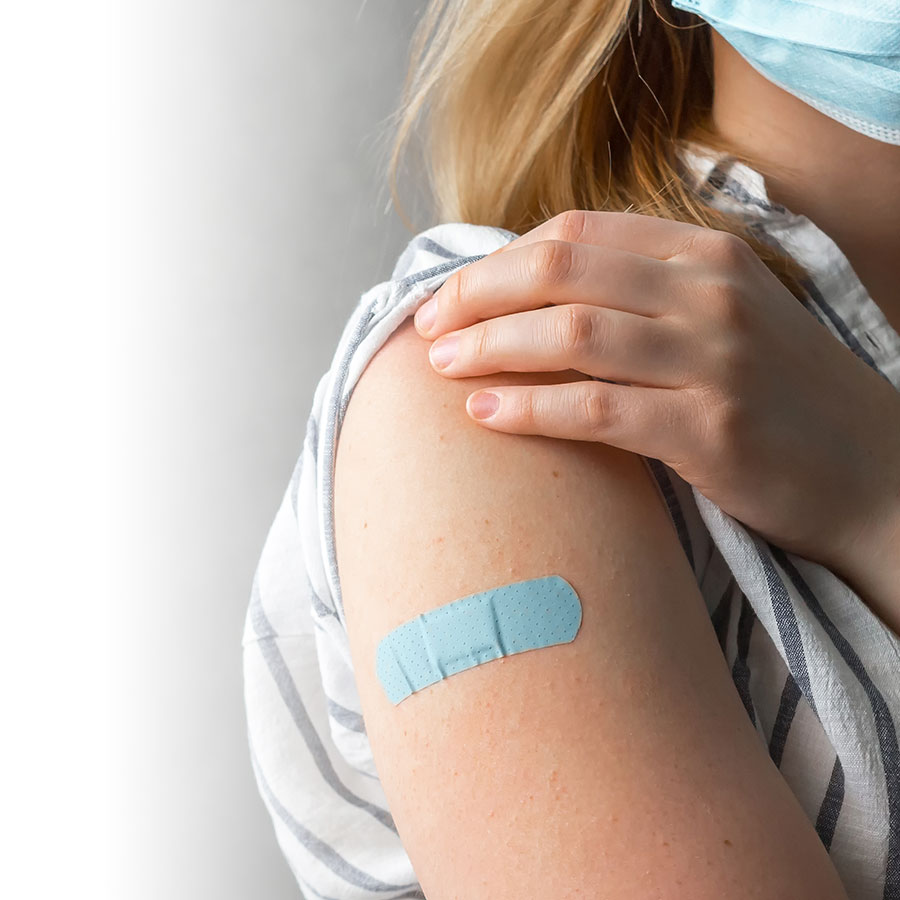Many people ask themselves this question as fall arrives and viruses begin to circulate. Here are some frequently asked questions about flu and COVID-19 vaccination, to help you make the right choice for you.
What is the purpose of influenza and COVID-19 vaccines?
Flu (influenza) and COVID-19 vaccination is a simple, safe and effective way to protect yourself against potentially serious respiratory infections such as those caused by COVID-19 and the flu. Flu and COVID-19 vaccines must be administered every year, as the specific virus strains targeted by the vaccines need to be revised annually to offer the best possible protection. The immune response to these vaccines is transient, lasting no more than a year. Not only does it protect us, it also helps to protect the most vulnerable members of the population by reducing transmission of the virus.
Who can get the flu or COVID-19 vaccine?
Anyone aged 6 months or over can get vaccinated against the flu and COVID-19 for free. These vaccines are recommended for people who are more at risk* of developing complications:
- people aged 75 and over;
- people aged 6 months and over with certain chronic illnesses chronic illnesses;
- pregnant women;
- children from 6 months to 17 years old;
- people of all ages living in nursing homes or long-term care facilities;
- immunosuppressed people;
- children or adolescents on long-term acetylsalicylic acid therapy;
- healthcare workers.
Even if they are in good health, those living in the same household as a person at risk of developing complications are also advised to get vaccinated against the flu and COVID-19.
How long does it take for vaccines to protect against the flu and COVID-19 viruses?
Flu and COVID-19 vaccines are generally effective two weeks after administration.
And how long are these vaccines effective?
Vaccine protection can vary from person to person, but the the flu vaccine lasts at least six months. It's important to note that vaccines only protect against certain strains of the virus, and that strains vary from year to year.
Does the COVID-19 vaccine protect against the flu?
The COVID-19 vaccine does not protect against the flu, and the reverse is also true. These are two distinct vaccines targeting specific viruses: coronavirus (in the case of COVID-19) and influenza (in the case of the flu). Both vaccines are needed to ensure protection against both infections.
Should healthy people be vaccinated against the flu and COVID-19?
Being in good health does not eliminate the risk of contamination by a virus, including coronavirus and the flu. Anyone can become very ill after contracting one of these viruses and suffer complications of varying degrees of severity.
The flu vaccine can be considered for all people aged 6 months and over if there are no contraindications, regardless of their state of health. That said, it is true that certain groups of individuals more vulnerable to the consequences of the flu should consider it even more seriously. By getting vaccinated against the flu and COVID-19, you reduce your risk of developing these diseases and transmitting them to people at greater risk.
Can the flu vaccine increase your chances of catching COVID-19?
Getting the flu vaccine will protect you against this infection, it will not make you more susceptible to COVID-19 and its complications. Contrary to popular belief, receiving a vaccine does not weaken the immune system. In fact, it helps to develop effective protection against a specific virus.
Can I get vaccinated against the flu and COVID-19 at the same time?
Both vaccines can be administered at the same time and in any order. However, in the case of simultaneous injections, the injection points must be separate (for example, one in the upper shoulder muscle, the other in the lower). In addition, the vaccinator must use a different syringe and needle for each vaccine.
How long do you have to wait between the flu vaccine and the Covid-19 vaccine?
There is no interval between these two vaccines. You can receive the flu vaccine at any time before or after receiving the COVID-19 vaccine.
What are the side effects of the flu or COVID-19 vaccines?
As with any medication, each of these vaccines on its own can cause certain effects, which are usually mild and temporary:
- Redness, swelling or tenderness at the injection site
- Muscle pain, joint pain
- Headache
- Fatigue, loss of appetite, drowsiness
- Chills and low-grade fever
When do side effects from flu and COVID-19 vaccines appear?
Side effects are caused by the body's natural response as it develops protection against the injected virus, and usually appear within a few hours of the injection. They generally last from a few hours to a few days after vaccination. Over-the-counter medications are available to relieve side effects such as fever. For more information on the possible side effects of vaccines and the best way to alleviate them, don't hesitate to consult your pharmacist.
Where can I get vaccinated against the flu and COVID-19?
You can make an appointment at your pharmacy affiliated to Jean Coutu to receive the flu and/or the COVID-19 vaccine free of charge. **
*Source: Government of Quebec, 2024
**Some conditions apply

